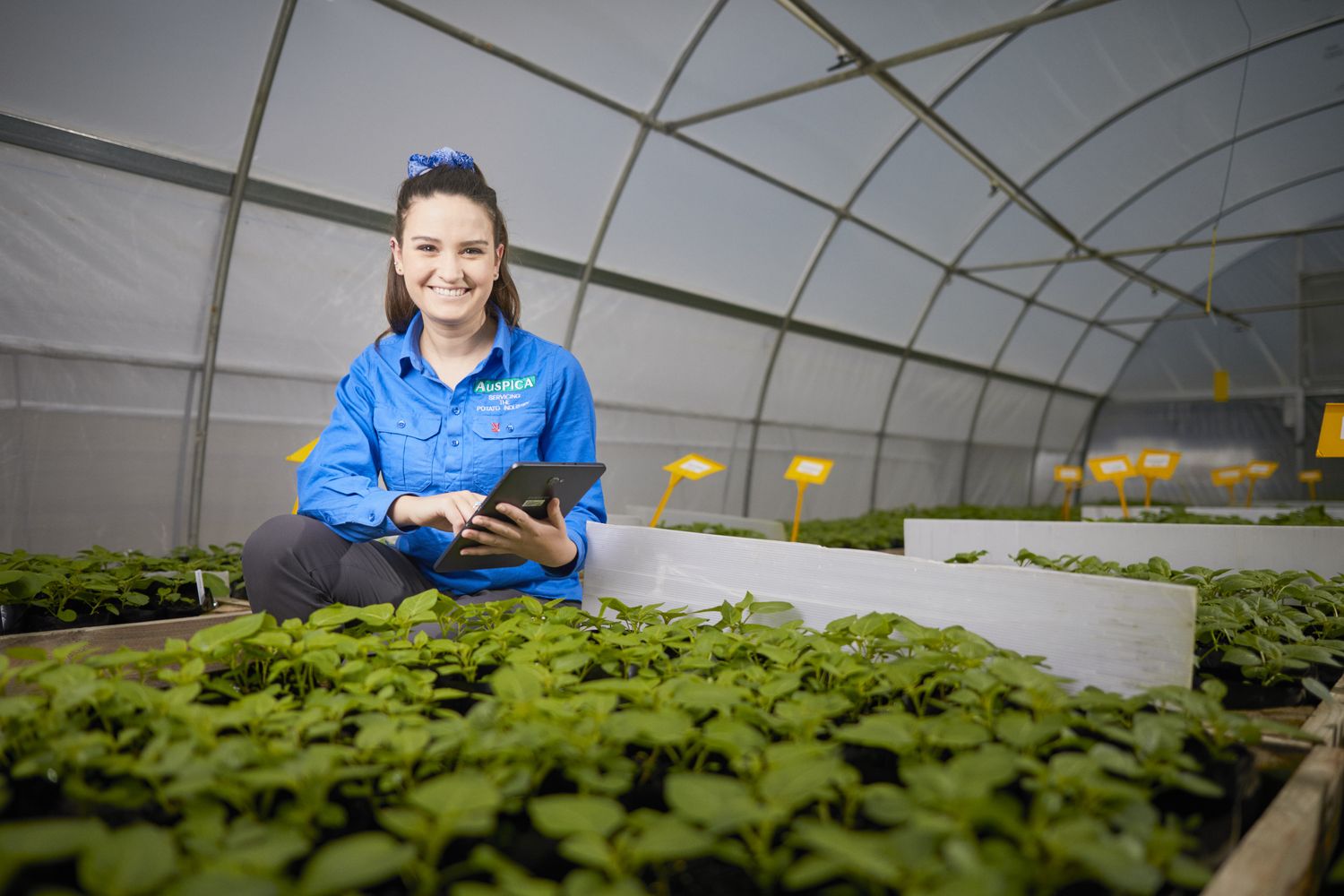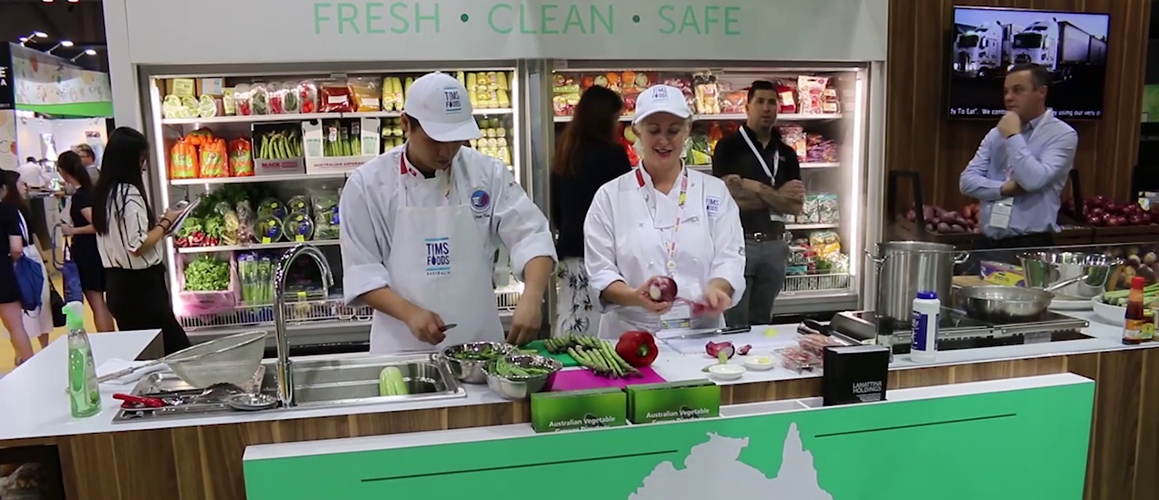
Apply to attend Foodex in Japan in 2019 – Applications closing soon!
14 December 2018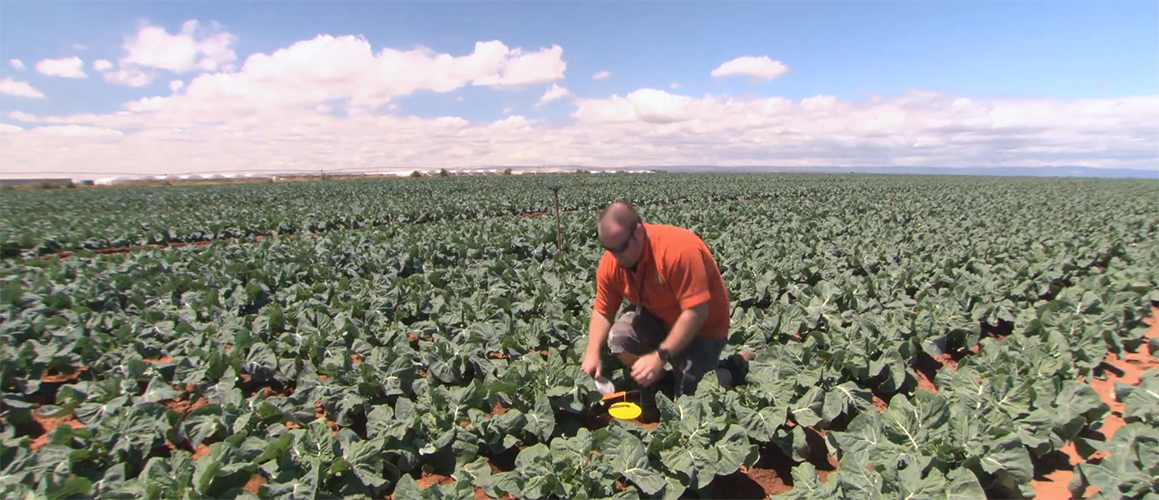
T Musolino and Co see benefits from adopting IPM on farm
16 December 2018Nellie Malseed is a 23-year-old Compliance Officer from AuSPICA in Toolangi, Victoria. We profiled her in the December 2018/January 2019 edition of Potatoes Australia magazine.
Fast facts
Name: Nellie Malseed
Location: Toolangi, VIC
Works: AuSPICA
Role: Compliance Officer
How did you first become involved in the potato industry?
In July 2017, I participated in an internship between Monash University and AuSPICA, and that’s when I started to learn about the complexities of the potato industry. It was a good opportunity as a student to be exposed to the potato industry and apply my knowledge. From my short time in the potato industry, I have discovered the importance of seed certification in managing pests and diseases for the benefit of the environment and sustainable food production.
What does your role as a Compliance Officer involve, and what are your responsibilities?
Behind a load of certified seed potatoes, there is a lot of paperwork! This paperwork captures the traceability and data management, which ensures the compliance to the conditions of the AuSPICA Seed Certification Scheme.
My role in the organisation is a new role and primarily I work as part of a team in ensuring that we have robust processes and procedures. A specific responsibility is to maintain the internal quality management systems.
My role fosters the important relationship between regulators and industry, and develops professional networks to support both international and interstate trade. I apply analytical skills to research to help discover solutions to industry issues.
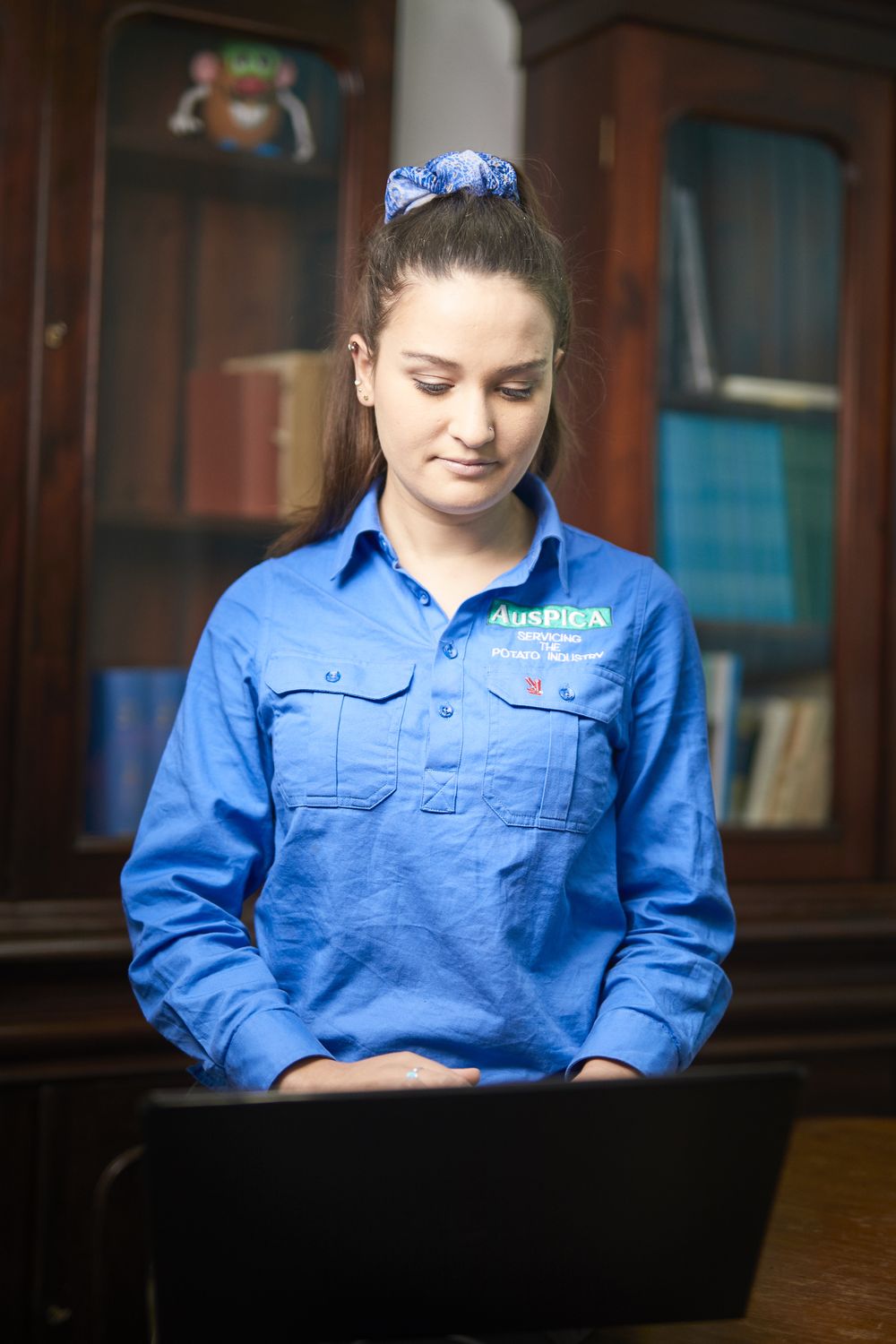
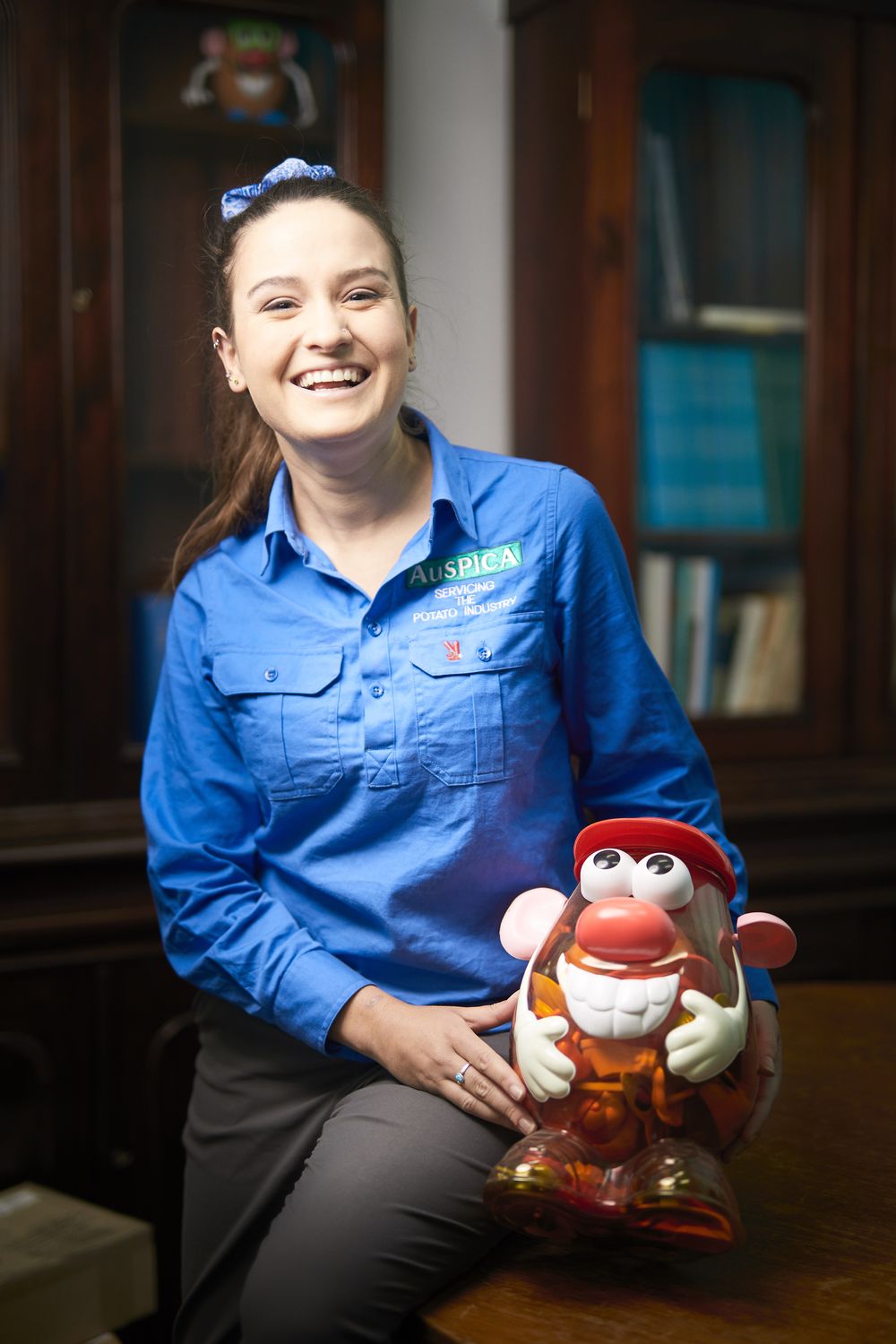
What do you enjoy most about working in the potato industry and how do you maintain your enthusiasm?
I enjoy working as part of a team and currently my day-to-day activity is very varied, from working in the office, attending meetings and going to see operations on farms. Being relatively new to the industry, there is a lot to be learnt; my enthusiasm comes from wanting to make a difference. It is great meeting new people who show me their passion and experience, and their enthusiasm is what I find contagious.
What are the biggest challenges you face working in the industry, and how do you overcome them?
It was a steep learning curve for me. I overcome challenges by stepping back and thinking about the importance of the industry, while eating potato gems! When there’s an area that I am not experienced in, I seek opinions and knowledge from our team which includes gaining a hands-on, practical understanding of all aspects of seed potato certification.
Where do you receive your practice advice and information from?
The AuSPICA team are brilliant mentors and teachers for me, and I readily ask for guidance and direction. I get information from growers, packers and I’m proud that some of these people are now friends. I seek nitty gritty scientific details and knowledge from published scientific papers. In addition, AuSPICA has an extensive network of experts available that I can contact.
The AuSPICA Conference was held in August 2018. What did you learn from the two-day conference, and what was the highlight for both yourself and the business?
The first day of the AuSPICA Conference was my first day of work! The highlight for me was the broad range of speakers and this gave me an incredible base of knowledge. It was great to meet people from across the industry.
For AuSPICA, the conference was a great success with overwhelming positive feedback. I’m looking forward to the next AuSPICA Conference to be held in 2020.
"Being relatively new to the industry, there is a lot to be learnt; my enthusiasm comes from wanting to make a difference. It is great meeting new people who show me their passion and experience, and their enthusiasm is what I find contagious."
What areas of research are important to the potato industry and seed certification?
There are many areas of research that are important to seed certification – good science continues to underpin seed certification. I personally find Integrated Pest Management very interesting and important. I recently saw first-hand the impact of powdery scab on seed potato production causing significant losses and yet surprisingly there is limited research happening on this disease in Australia.
In your opinion, what is the importance of seed certification in the potato industry?
Conservation and sustainability are topics that I am passionate about and using certified seed potatoes means less pests and diseases which, in turn, results in less reliance on pesticides and chemicals. More productive potato crops using high-quality certified seed potatoes means better commercial yields with more efficient use of water and other inputs to produce potatoes.
What new developments, innovations or research has AuSPICA implemented recently?
Innovation that AuSPICA has implemented recently includes:
- The agritech development of geospatial software to map and document fields that are used to produce certified seed potatoes. Developed with funding from Agriculture Victoria, this app will be used to trace all seed plots and associated information.
- Together with the processing tomato industry, AuSPICA has secured a small grant from Hort Innovation to adopt passive suction traps and modern technology that uses the DNA barcoding of insects to conduct surveillance for inspect pests.
Where do you see opportunities for growth in the Australian potato industry?
It is exciting to be involved in the future of the seed Scheme. Getting more use of certified seed potatoes within the industry is always an opportunity for growth. An example of this occurred recently with AuSPICA obtaining market access into Indonesia and Papua New Guinea.
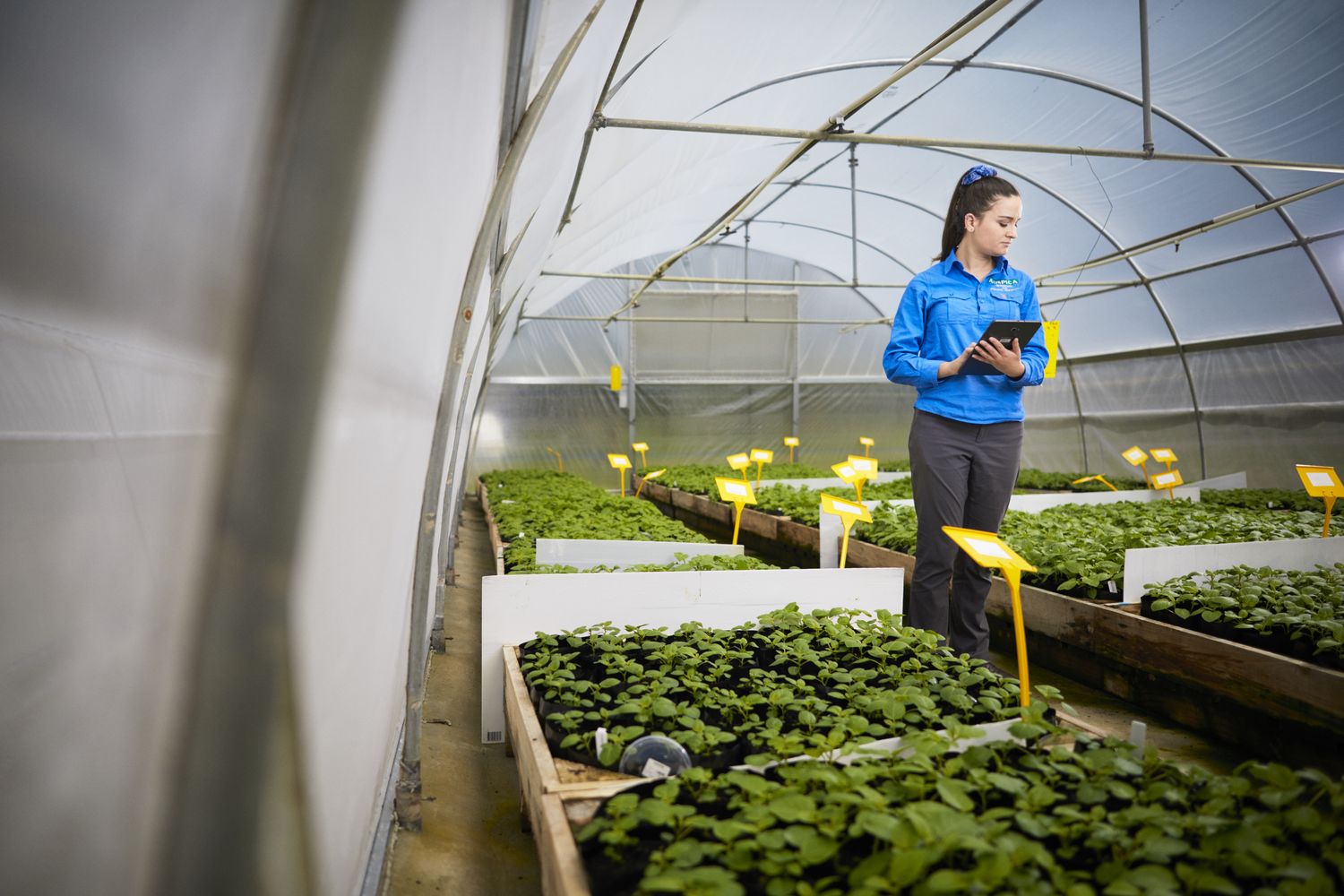
Where do you see yourself in five years?
I will be involved in the potato industry, and over five years I will have developed some valuable experience. There are plenty of opportunities for professional growth within AuSPICA and the broader industry. One thing is for sure: I will still be eating potato gems!
What is your vision of the Australian potato industry in the future?
My vision, albeit from a newcomer to the industry, is to see people within the industry succeed and prosper by embracing new technology to sustainably grow profitable crops to feed the world.
How do you think more young people could be encouraged to study and take up jobs in the potato industry?
Potatoes are a massive industry and the basis of our food source, and people will always need to be fed. Young students who want more job security than other science areas should look towards the ever-growing potato industry. There is more to ‘spuds’ than just dirt and potatoes – there are amazing applications of science that could be used to develop solutions.
This industry profile first appeared in the leading magazine for the Australian potato industry, Potatoes Australia, and was featured in the AUSVEG Weekly Update published 19 February 2019. If you’d like to subscribe to receive a new edition of Potatoes Australia in your mailbox every two months, use our online subscription form!
Photo credit: Luka Kauzlaric

